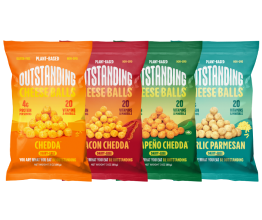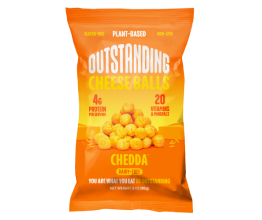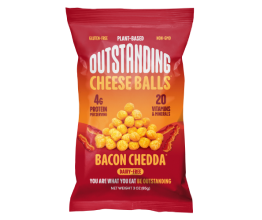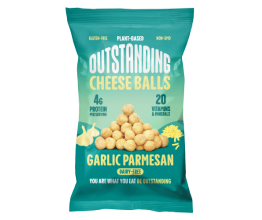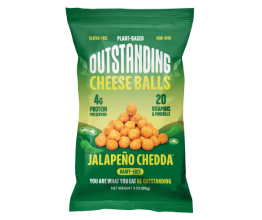What Is Kosher Food? The Ultimate Guide to Kosher
So, you want to know what kosher food is? Maybe you saw a small kosher label on the back of your food, and you want to know what kosher even means. Or perhaps you're Jewish and trying to gain a deeper understanding of what exactly makes something a kosher food.
Either way, we will break it down for you bit by bit so you can brag to all your friends about your krazy kosher knowledge.
What Does Kosher Mean?
Kosher food and drinks are basically any foods that the Jewish dietary laws allow a person to eat. The Hebrew word kosher translates to mean “fit,” as in the foods that are fit for a Jewish person to eat. These rules are laid out in the Torah and specify the types of foods you can and can’t eat as well as the suitable preparation techniques.
These laws are strict, and if a company wants to have their food labeled as a certified kosher food, then they have to follow these rules and have the food properly inspected to gain the seal of approval.
Perhaps you have heard before that people who only eat kosher do not eat pigs and have to skip out on bacon. This is true of a kosher diet, but the laws forbid far more than crispy bacon.
There are several different types of meats that are not suitable for a kosher diet. The laws even go beyond the type of meat you are allowed to eat with specific rules for how animals can be slaughtered respectfully. It is also forbidden to combine certain meats in the same meal.
What’s The History Of Kosher Food?
The laws of kosher food originated in the bible and have been followed by Jewish people for over 3,000 years. In other words, this tradition of the Jewish religion is an age-old practice that deserves some mad respect.
Nowadays, not every single person who is Jewish follows the kosher diet, but many have held onto this diet as a part of their sacred practice.
Kosher food practices came to America in 1654 when the first American Jewish congregation was founded. 23 Sephardic Jews were cast out by the Spanish Inquisition and arrived in New Amsterdam, now modern-day New York, to lay down roots and create a Synagogue in their newfound home. These men began slaughtering and preparing kosher meat to feed their growing Jewish community.
In 1739, 85 years later, the bustling community of New York Jews relied on this Synagogue entirely for their supply of kosher meat. The operation became so big that they could even begin exporting their kosher products to Jamaica and Curacao.
This community continued growing in America for the next 150 years, and eventually, there were several different businesses that produced kosher foods, including jams, gefilte fish, borscht, and Matzo.
In 1905 the first kosher restaurant opened in New York to serve an entire menu of kosher offerings. Then, in 1915, the first Kosher Food Law was introduced to prohibit non-kosher food from being incorrectly labeled as kosher. Nowadays, the kosher food industry is valued at 13 billion dollars and continues to grow each year.
Types Of Kosher Foods
Kosher foods fall into three categories: meat, dairy, and pareve or parve.
1) Meat
Kosher meat comes from animals that have split hooves and chew their cud. What does chewing their cud mean exactly? Well, you know how cows are known for throwing up their partially digested food and then eating it again?
While this may seem a little gross, this is what chewing their cud means, and a lot of animals do it to digest their food properly.
This is why pigs are not kosher, because while they do have split hooves, they do not chew their cud. Common animals that are kosher include cows, sheep, and goats. However, the type of animal is not the only thing that makes an animal kosher.
There are also specific rules about how the animal can be slaughtered and processed, limiting the type of equipment that can be used. Animals that die of natural causes cannot be kosher even if they are a suitable type of animal. In other words, if it died of natural causes, you need to let that animal RIP.
2) Dairy
When it comes to dairy products, the kosher rules are a bit more simple, well, as long as you’ve got your kosher animals down.
Basically, any dairy products such as milk, cheese, yogurt, or butter need to come from a kosher animal to be kosher. So, cow’s milk, cheese, butter, and yogurt are fully kosher. Any dairy products that come from goats or sheep are also kosher.
However, if you come across some Pig’s milk or cheese, then it is not kosher. Although you shouldn’t worry, pig’s milk is not typically used for any human products. It is mainly for feeding cute little piglets.
3) Pareve
This category covers everything that is not meat or dairy, such as eggs, fish, fruits, vegetables, pasta, coffee, and anything else that is processed food. There are a lot of rules that fall under this category, so let’s just do a quick list of a few of them.
- You can’t eat milk and meat at the same time. A kosher diet is not suitable for someone who likes cheese on their burger. You also have to wait for a period of time after eating meat before eating dairy. So no ice cream for dessert right after a steak dinner.
- Fish is only kosher if it has both scales and fins. You can eat salmon, bass, and trout on a kosher diet, but not crab, shellfish, or lobster.
- Cheese is only kosher if it does not have any animal-based rennet. Rennet is an enzyme that is commonly used in cheeses.
- Grains and bread are only kosher if they are officially certified. This is because the bread cannot be made with any non-kosher ingredients or with equipment that is greased with animal fats or lard.
- Fresh produce is pareve, but you need to double-check and wash it thoroughly to make sure there are no insects on it. Insects are not kosher, so no chocolate-covered crickets, ok?
- Nuts and oils are generally kosher, but you have to double-check the label to make sure no ingredients were added that are not kosher.
- Wine must be prepared under strict rules and certified by an Orthodox Rabbi to be kosher.
How To Identify Kosher Foods
Are you trying to tell if specific foods are certified kosher? Then look on the back of the package near the nutrition label for a capital K; this means that the product you are looking at is kosher certified. If the K is in a circle, then this means that the company OK Kosher Certification has approved this product as a kosher product.
If there is a capital D after the K, this means that the product was produced with equipment that is also used on dairy products, and therefore you must treat them as if they are a dairy product and never eat them with meat. This labeling can also be helpful for people with severe dairy allergies.
If the word Parve is on the label, you can assume that the food is kosher and not meat or dairy. This can also be written as a capital U in a circle.
Is Kosher Food Better For You?
Nope. There are a wide variety of kosher foods, from fresh produce to cookies and candy. Kosher products aren’t necessarily healthier; they are just foods that follow the rules that are laid out in the Torah.
However, the kosher labels can be helpful for people with dairy allergies as well as vegans and vegetarians since kosher foods always have to say if they were processed near meat or dairy.
What Snacks Are Kosher?
Luckily, all of Outstanding Food’s delicious Outstanding Puffs are certified kosher, non-GMO, vegan, gluten-free, soy-free, zero trans-fats, plant-based, and out of this world delicious. They have 21 grams of protein and are the perfect healthy snack for adults and kids alike.
Take your pick of any of our delicious flavors like Pizza Partay, Chill Ranch, Hella Hot, or White Chedda. Feel free to eat the whole bag in one sitting without compromising your kosher diet. These tasty puffs go great with a hamburger; no cheese, please!
Wrap Up
The kosher food laws can be challenging to understand, but hopefully, you now have a better idea of what makes a food kosher and how to find kosher products by the label. If you are looking for a tasty, fully parve snack, then Take Out puffs are the perfect snack for you. Warning, order extra because they are highly addictive!
Sources:
